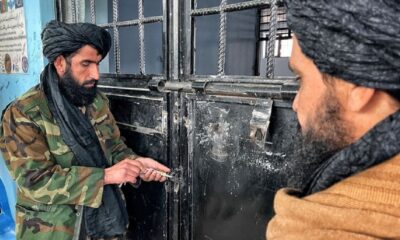Regional
US, Iran in talks to cool tensions with a mutual ‘understanding’
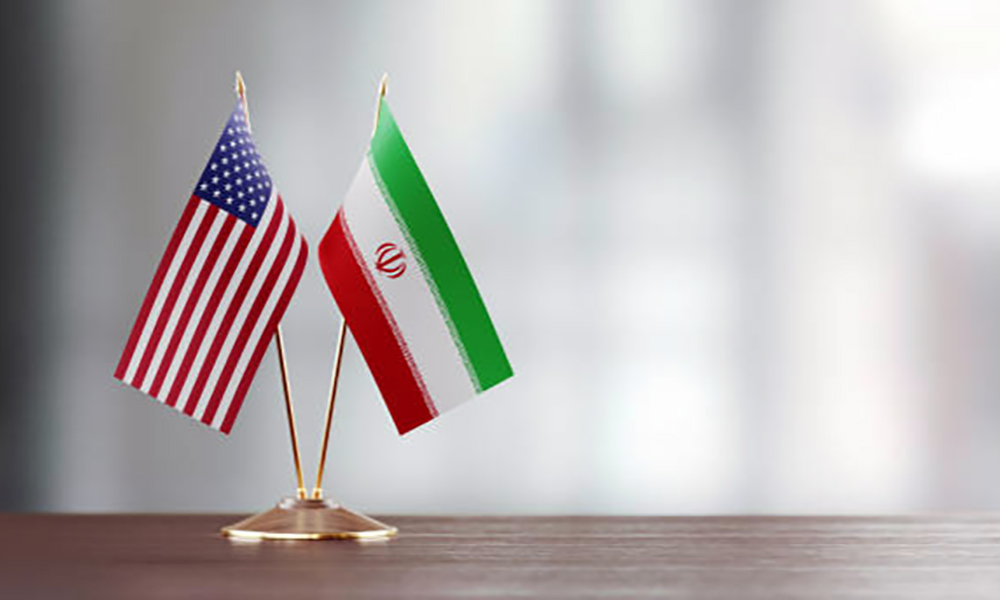
The United States is holding talks with Iran to sketch out steps that could limit the Iranian nuclear programme, release some detained U.S. citizens and unfreeze some Iranian assets abroad, Iranian and Western officials said.
These steps would be cast as an “understanding” rather than an agreement requiring review by the U.S. Congress, where many oppose giving Iran benefits because of its military aid to Russia, its domestic repression and its support for proxies that have attacked U.S. interests in the region, Reuters reported.
Having failed to revive a 2015 Iran nuclear deal, Washington hopes to restore some limits on Iran to keep it from getting a nuclear weapon that could threaten Israel and trigger a regional arms race. Tehran says it has no ambition to develop a nuclear weapon.
The 2015 deal, which then-President Donald Trump abandoned in 2018, had capped Tehran’s uranium enrichment at 3.67% purity and its stockpile of this material at 202.8 kg (447 pounds) – limits Tehran has since far exceeded.
U.S. and European officials have been searching for ways to curb Tehran’s nuclear efforts since the breakdown of indirect U.S.-Iranian talks. The willingness to restart discussions illustrates the rising sense of urgency in Western capitals about Iran’s programme, read the report.
The U.S. government has dismissed reports it is seeking an interim deal, using carefully constructed denials that leave open the possibility of a less formal “understanding” that could avoid congressional review.
State Department spokesman Matt Miller denied there was any deal with Iran.
However, he said Washington wanted Tehran to de-escalate tensions and curb its nuclear programme, cease support for regional proxy groups that carry out attacks, halt support for Russia’s war on Ukraine and release detained U.S. citizens.
“We continue to use diplomatic engagements to pursue all of these goals,” he added, without giving details.
An Iranian official said: “Call it whatever you want, whether a temporary deal, an interim deal, or a mutual understanding – both sides want to prevent further escalation.”
In the first instance, “that will involve prisoner exchange and unblocking part of Iran’s frozen assets”, he said.
Further steps might include U.S. sanctions waivers for Iran to export oil in return for ceasing 60% uranium enrichment and greater Iranian cooperation with the U.N. nuclear watchdog, he said.
“I’d call it a cooling-down understanding,” said a Western official on condition of anonymity, saying there had been more than one round of indirect talks in Oman between U.S. National Security Council official Brett McGurk and Iran’s chief nuclear negotiator, Ali Bagheri Kani.
U.S. Special Envoy for Iran Rob Malley has also met Iran’s ambassador to the U.N. after months of Iran refusing direct contact, Reuters reported.
The Western official said the idea was to create a status quo acceptable for all, getting Iran to avoid the Western redline of enriching to 90% purity, commonly viewed as weapons grade, and possibly even to “pause” its enrichment at 60%.
In addition to the 60% pause, both sides are discussing more Iranian cooperation with the International Atomic Energy Agency and not installing more advanced centrifuges in return for the “substantial transfer” of Iranian funds held abroad, the official said.
The official did not specify whether the pause meant Iran would commit not to enrich above 60% or whether it would stop enriching to 60% itself.
The order of the steps and how they might relate to a release of three detained U.S. citizens held by Iran was also unclear. Officials have previously said freeing them might be connected to the release of frozen funds.
Iran’s foreign ministry spokesperson said on Monday the two nations could exchange prisoners soon if Washington showed goodwill, saying there were talks through intermediaries, without giving details. Iran’s mission to the U.N. did not immediately respond to a detailed request for comment.
The Western official said the key U.S. objective was to keep the nuclear situation from worsening and to avoid a potential clash between Israel and Iran.
“If (the) Iranians miscalculate, the potential for a strong Israeli response is something that we want to avoid,” he said.
U.S. officials appear to avoid saying they are seeking an “agreement” because of a 2015 law under which Congress must get the text of any accord about Iran’s nuclear programme, opening a window for legislators to review and potentially vote on it.
U.S. House Foreign Affairs Committee Chairman Michael McCaul, a Republican, wrote to President Joe Biden on Thursday saying “any arrangement or understanding with Iran, even informal, requires submission to Congress”.
Regional
Powerful quake in Southeast Asia kills several, Myanmar declares state of emergency
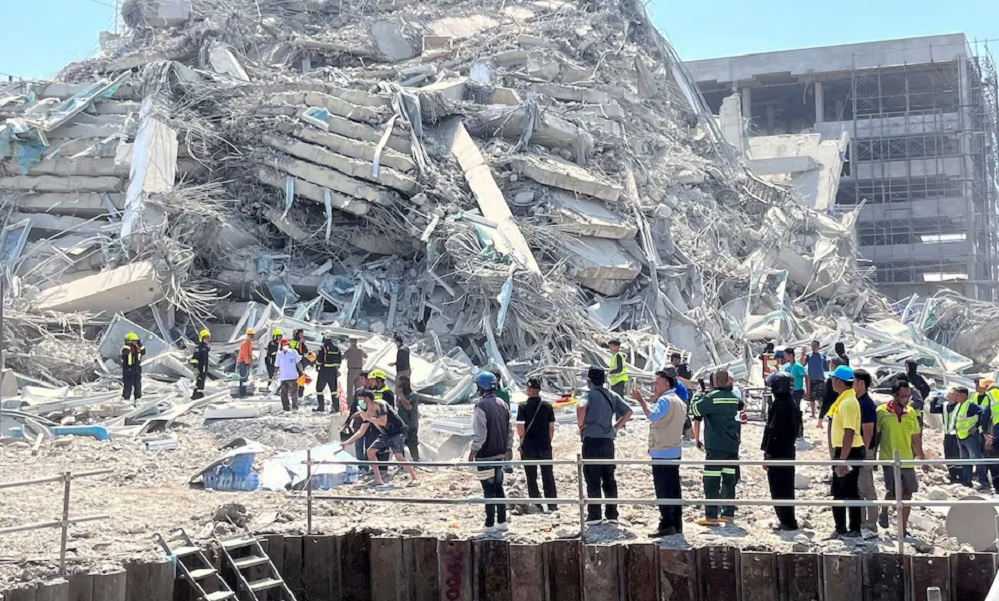
A powerful earthquake rocked Southeast Asia on Friday, killing several people, bringing down a skyscraper under construction in Bangkok and toppling buildings in neighbouring Myanmar, where the ruling junta declared a state of emergency in some areas.
At least three people were killed in the town of Taungoo in Myanmar when a mosque partially collapsed, witnesses said, while local media reported that at least two people died and 20 were injured after a hotel collapsed in Aung Ban, Reuters reported.
In Thailand, at least one person was killed and dozens of workers were rescued from under the rubble of the skyscraper that had been under construction in Bangkok, Thailand’s National Institute of Emergency Medicine said.
Bangkok’s city authorities declared the capital a disaster-stricken area, saying they needed to assess and monitor damaged areas, and assist people who might still be at risk.
In Bangkok, people ran out onto the streets in panic, many of them hotel guests in bathrobes and swimming costumes as water cascaded down from an elevated pool at a luxury hotel, witnesses said.
The United States Geological Survey (USGS) said the quake, which struck at lunchtime, was of 7.7 magnitude and at a depth of 10 km (6.2 miles). It was followed by a powerful aftershock.
The epicentre was about 17.2 km from the Myanmar city of Mandalay, which has a population of about 1.5 million.
Myanmar’s ruling military declared a state of emergency in multiple regions.
“The state will make inquiries on the situation quickly and conduct rescue operations along with providing humanitarian aid,” it said on the Telegram messaging app.
Mandalay is Myanmar’s ancient royal capital and at the centre of the country’s Buddhist heartland.
Social media posts showed collapsed buildings and debris strewn across streets in the city. Reuters could not immediately verify the posts.
One witness in the city told Reuters: “We all ran out of the house as everything started shaking. I witnessed a five-storey building collapse in front of my eyes. Everyone in my town is out on the road and no one dares to go back inside buildings.”
Another witness in the city, Htet Naing Oo, told Reuters that a tea shop had collapsed with several people trapped inside. “We couldn’t go in,” she said. “The situation is very bad.”
At least three people died after a mosque in Taungoo partially collapsed, two eyewitnesses told Reuters.
“We were saying prayers when the shaking started… Three died on the spot,” said one of two people who spoke to Reuters.
Local media reported a hotel in Aung Ban, in Shan state, crumbled into rubble, with one outlet, the Democratic Voice of Burma, reporting two people had died and 20 were trapped.
Video and images posted by Myanmar Now showed a roof cratered at a market in the capital, Naypyitaw.
In Mandalay, the outlet’s images showed a clock tower had collapsed and part of the wall by Mandalay Palace was in ruins.
China’s Xinhua news agency said strong tremors were felt in southwestern Yunnan province, which borders Myanmar, but there were no reports of casualties.
Witnesses contacted in Yangon, Myanmar’s largest city, said many people ran out of buildings.
OFFICE TOWER SHAKES IN BANGKOK
One office tower in downtown Bangkok swayed from side to side for at least two minutes, with doors and windows creaking loudly, witnesses said.
Hundreds of employees filed out via emergency stairs as some shocked and panicked workers froze. Loud shrieks could be heard as the building continued to sway.
Outside, hundreds gathered in the afternoon sun, while staff with medical kits found office chairs for the elderly and people in shock.
China’s Xinhua news agency said strong tremors were felt in southwestern Yunnan province, which borders Myanmar, but there were no reports of casualties.
Regional
Iran ready for indirect talks with US, Khamenei aide says
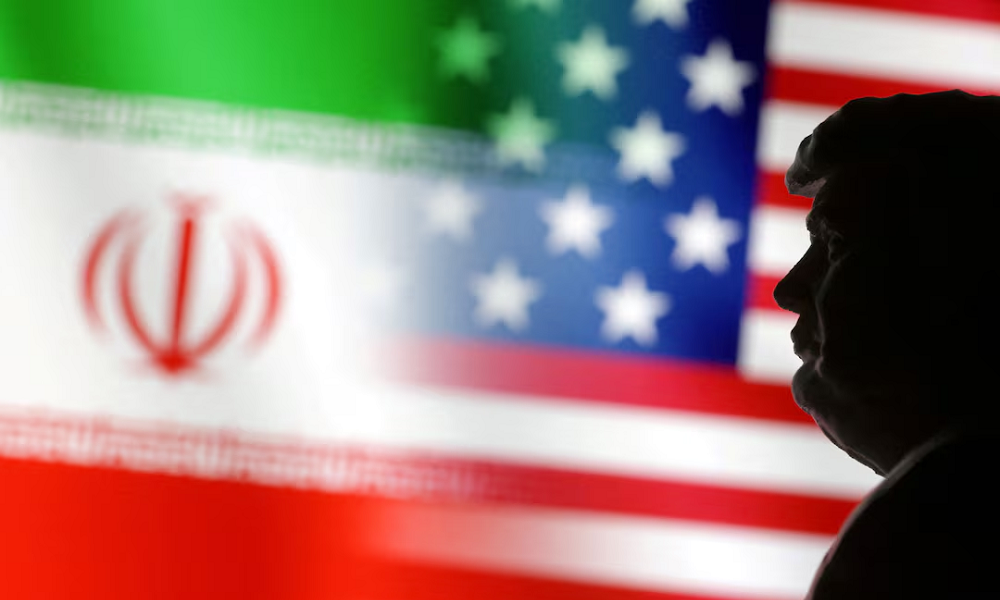
Kamal Kharrazi, an adviser to Iran’s supreme leader, said on Thursday Tehran has not closed all doors to resolve its disputes with the United States and is ready for indirect negotiations with Washington.
Tehran has so far rebuffed U.S. President Donald Trump’s warning it to make a deal or face military consequences. Supreme Leader Ayatollah Ali Khamenei called the message deceptive and Foreign Minister Abbas Araqchi said talks are impossible unless Washington changes its “maximum pressure” policy.
“The Islamic Republic has not closed all doors. It is ready for indirect negotiations with the United States in order to evaluate the other party, state its own conditions and make the appropriate decision,” Kharrazi said, according to the semi-official Iranian Students News Agency.
Iran is meant to soon reply to Trump’s letter, with Araqchi saying last week that Tehran would take into consideration both Trump’s threat and opportunities in its response.
In his first 2017-21 term, Trump withdrew the U.S. from a 2015 deal between Iran and world powers that placed strict limits on Tehran’s disputed nuclear activities in exchange for sanctions relief.
After Trump pulled out in 2018 and reimposed sweeping U.S. sanctions, the Islamic Republic breached and has since far surpassed those limits in its escalating programme of uranium enrichment.
Western powers accuse Iran of having an clandestine agenda to develop nuclear weapons capability by enriching uranium to a high level of fissile purity, above what they say is justifiable for a civilian atomic energy programme.
(Reuters)
Regional
Pakistan, China in talks about security for Chinese nationals
Chinese nationals have been targeted by separatist militants who believe Beijing is helping Pakistan exploit minerals in Balochistan
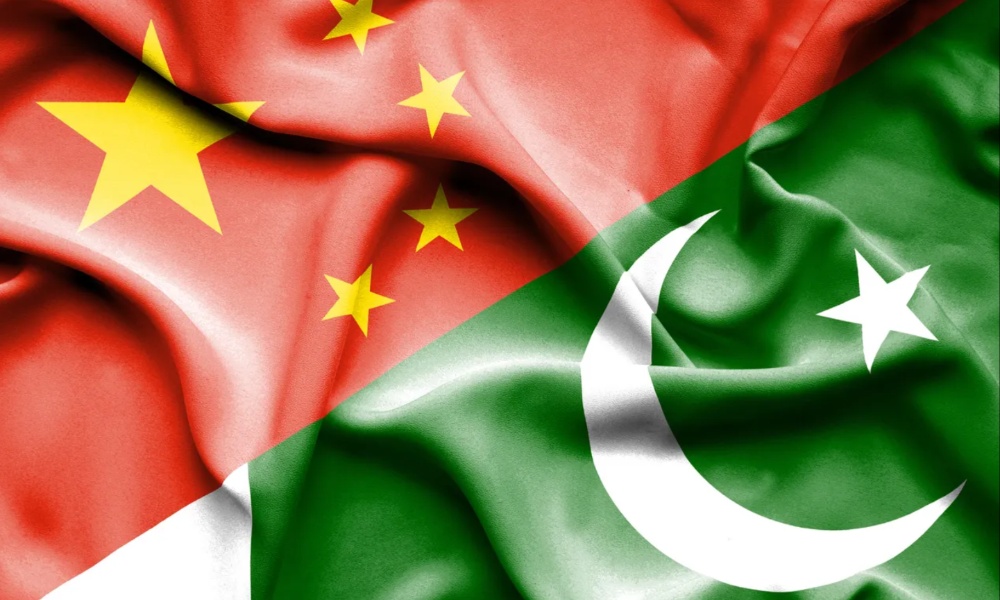
Pakistan and China’s discussions about security measures to protect Chinese nationals working in the South Asian country are a work in progress, Islamabad’s ambassador to Beijing said on Wednesday.
Chinese nationals have been in the crosshairs of separatist militants who believe Beijing is helping Pakistan exploit minerals in the underdeveloped southwestern province of Balochistan, where China has a strategic port and mining interests, Reuters reported.
It is Pakistan’s “national responsibility” and the country is “doing everything possible”, Ambassador Khalil Hashmi told reporters at the sidelines of the Boao Forum in China’s Hainan province.
“I think our two countries work very closely in terms of information sharing, in terms of developing the standard operating procedures” to ensure Chinese nationals working in Pakistan are safe, he said.
“We keep our Chinese friends informed of the steps that we are taking, so it’s a work in progress.”
Beijing has been pushing Pakistan to allow its own security staff to provide protection to thousands of Chinese citizens working there, frustrated by the string of attacks on its citizens.
The push came after a bombing at the Karachi airport last October killed two Chinese engineers who were returning there to work at a power plant.
Hashmi said those talks are ongoing, with a high degree of trust between both countries.
“It’s a complex security environment,” he said, “We have the capability to resolve, to counter and combat and defeat these terrorist forces.”
-
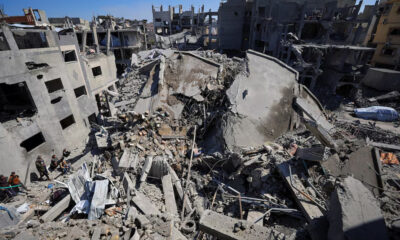
 Regional5 days ago
Regional5 days agoEgypt makes new proposal to restore Gaza truce as Israeli strikes kill 65
-

 International Sports5 days ago
International Sports5 days agoIPL 2025: Last over drama; Ashutosh Sharma clinches win for Delhi Capitals
-

 Sport4 days ago
Sport4 days agoAfghanistan eliminated from Asian Beach Soccer Championship
-
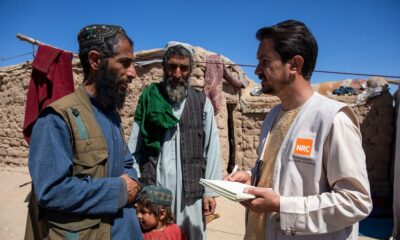
 Latest News5 days ago
Latest News5 days agoNorwegian Refugee Council cuts back on essential humanitarian services in Afghanistan
-
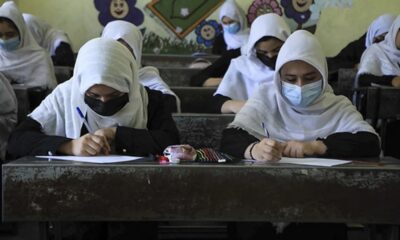
 Latest News5 days ago
Latest News5 days agoUN warns over 4 million Afghan girls will be deprived of education by 2030 if ban continues
-

 World4 days ago
World4 days agoSecretive Chinese network tries to lure fired US federal workers, research shows
-
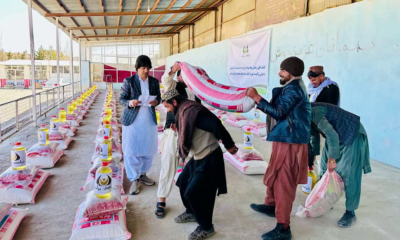
 Latest News4 days ago
Latest News4 days agoDozens of needy families in Ghazni get much needed food aid from Bayat Foundation
-

 Sport4 days ago
Sport4 days agoAFC Asian Cup 2027 Qualifiers: Myanmar defeat Afghanistan 2-1








